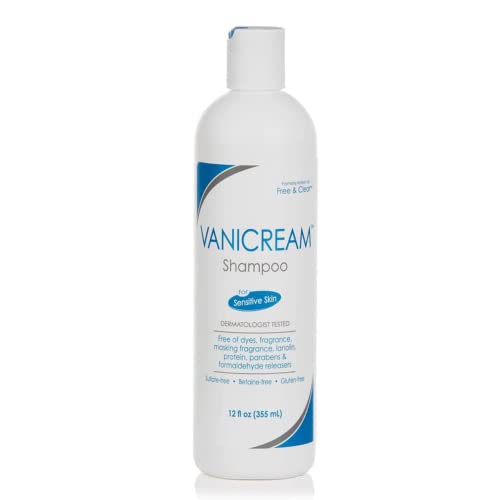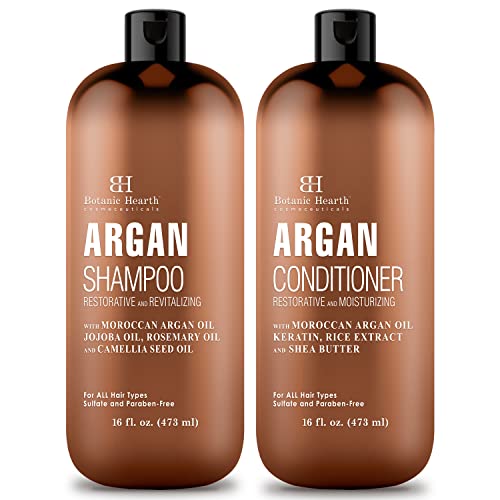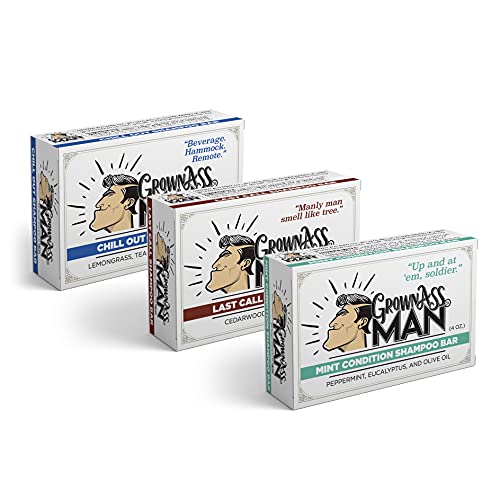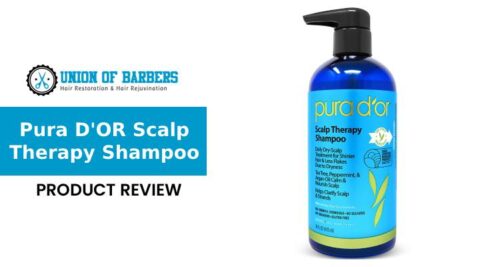Is alcohol in shampoo bad?
The short answer is NO. Shampoos containing alcohol are not necessarily bad for your hair! Although an alcohol free shampoo can protect your scalp from allergic reactions, not all shampoos without alcohol can maintain their desired effect.
As consumers, we are easily deceived. Whether we are shopping for hair care products, the trend of time has taught us to go for a product that is organic and environmentally friendly. Whilst they at the same time do “the trick” of fixing our consumer pain.
The fact of the matter is, however, that almost all hair care products contain some degree of alcohol.
Whether or not our shampoos consist of long-chain alcohol or short-chain alcohol will make a significant difference to the “sharpness” and longevity of your shampoo. More on that later.
Best Alcohol Free Shampoos
When choosing shampoos, most of us rarely consider their ingredients. For those of us who do consider the ingredients, it may be because you have caught on a rash or another allergic reaction from a given chemical combination.
To illustrate the point, below is one of our favorite shampoos in my salon. The The Aussie Miracle Moist and leave-in conditioner feel smooth and smell great. That’s why we use it daily to wash the hair of our customers before they are sat in the chair.

Now Aussie Miracle Moist has been tested and approved by the FDA, so no one can question its eligibility. And that is not what this author is trying to imply either.
Looking at the back of the picture, we are being told at the very top that, yes, there are extracts from macadamia nuts in the shampoo.
Now turn the bottle 180 degrees to the various substances included in the shampoo. Besides macadamia nuts, this shampoo consists of a great variety of different chemicals.

That being said unless you are some kind of “Breaking Bad – Walter White” kinda guy, it is impossible to identify which alcohol does what and why. All we really know is that it is safe to use, smells like macadamia nuts, and does the trick – cleaning our customer’s hair.
You may like to read:
- What is a Neutralizing Shampoo? All You Need to Know About “Nutralizing” Shampoos.
- 10 Best Sulfate-Free Shampoo Reviews And Buyer’s Guide
Why does shampoo even contain alcohol?
Alcohol is an organic compound that has at least one hydroxyl function group (-OH) attached to a saturated carbon. The number of carbon atoms determines the structure and type of alcohol.
Most hair care and skin care products generally use two types of alcohol. The short-chain alcohol or the drying alcohol, and the long-chain alcohol or the fatty alcohol.
Alcohol is typically used in shampoos to help blend the ingredients together. Unlike water, it has the capacity to dissolve oils in our hair. Thus, it helps cleanse the scalp and hair. It is also used to thicken the shampoo formula and is known to smoothen, soften and moisturize the hair.
Well, that sounds great!
If that is the case, why do we have to bother to consider getting an alcohol free shampoo?
The Two Types of Alcohols Found in Shampoos
Earlier, we mentioned that there are different types of alcohol and we identified the two most frequently used types in shampoos. These two types of alcohol do not have the same properties and effects on our hair, scalp, skin, and eyes.
If we do not know the characteristics of the alcohol in our shampoo, we might use products that do more harm than good to our hair and scalp.
The Long-Chain or Fatty Alcohols

Long-chain alcohols or fatty alcohols are regarded as good alcohols for your hair and scalp. They are named long-chain because they contain greater than 12 carbon atoms (usually along the 12 to 20 carbon atom range), far more than the carbon atoms in short-chain alcohol.
It is also called fatty alcohol because it is typically derived from fatty acids, natural sources, and plant-based oils like coconut oil.
The fatty alcohols are basically oilier. Thus, they are an effective hair lubricant and moisturizer. They create a film outside the hair that locks in moisture. These alcohols also make hair shiny, soft, and smooth.
As a shampoo ingredient, it helps thicken the formula and mix in together the ingredients. It is great at rinsing off oils and dirt on the scalp and hair.
Examples of fatty alcohols used in shampoos are listed below.
- Lauryl alcohol
- Behenyl alcohol
- Cetyl alcohol
- Stearyl alcohol
- Myristyl alcohol
- Cetearyl alcohol
Based on the information above, is it safe to assume that as long as shampoos use fatty alcohol, then all is well?
Sadly, the answer is no.
There are still exceptions to the rule. Take, for example, the Benzyl alcohol. It falls under the fatty alcohols, but it is also known to be irritating to the scalp.
Another one is the Cetearyl alcohol. It is known to be an allergen that can lead to severe contact dermatitis.
Aside from these two, another point to consider is where the fatty alcohols were derived. Most came from palm oil which is a highly controversial source. This is often tied to issues like climate change, deforestation, and the rights of the native populations.
The Short-Chain or Drying Alcohol

The other most frequently used type of alcohol in shampoos are short-chain alcohol or drying alcohol. These alcohols are often referred to as the bad alcohol. It is called short chain because it only contains three or fewer carbon atoms. On the other hand, it is also called drying alcohol because they are quick to evaporate and dry.
Before we talk about why it is called the bad alcohol for shampoos, let us first know why it is used.
The drying alcohols provide benefits for shampoo formulas. This includes their ability to mix the dissolved oil and other ingredients with water. They distribute the ingredients in the shampoo and to the hair evenly. These alcohols help hair dry easily after washing. Making it easy for those who blow dry their hair often.
However the downside of short-chain alcohols outweighs the benefits. These alcohols are regarded as bad because of their drying properties. They can strip away not only the excess oils but also the natural oils in our hair. This leaves hair dry, brittle, and frizzy.
They are also known to irritate the eyes. That is why most children’s shampoos do not use short-chain alcohol as an ingredient.
Examples of dry hair causing alcohol to watch out for are listed below.
- Isopropyl alcohol
- Ethanol or Ethyl Alcohol
- Propanol
- SD alcohol
- Propyl alcohol
- SD alcohol 40
After learning about the types of alcohol to avoid in shampoos, let us now proceed with our central concern. Should we shift to an alcohol free shampoo, then?
Is it best to choose an alcohol free shampoo?

The simple answer is — it depends. Alcohol free shampoos do not strip off hair’s natural oils. It reduces the chances of drying out hair and making it frizzy. This means that hair can remain healthy, strong, and shiny. It is safe to say that you cannot go wrong with an alcohol free shampoo.
However, choosing alcohol-free shampoos does not necessarily follow that you should abandon shampoos that contain good alcohol. To push the argument further, we do not also advise that you should never ever use shampoos with the so-called bad alcohol.
What do we exactly mean by these things?
Everyone has different types of hair. If you dry, frizzy, or damaged and color-treated hair, then an alcohol free shampoo could do wonders for your hair. You get to retain much of your hair’s natural moisture.
If you have wavy and curly hair, then you also need as much natural oil as you can lock in your hair. Thus, alcohol free shampoos are also a match for you.
Meanwhile, if you have extremely oily hair to begin with, then it helps to use shampoos with alcohol from time to time.
But if you want to avoid shampoos with alcohol, you can also try dry shampoos. They will greatly help in eliminating excessive oils, scalp build-up, and dirt. Dry and alcohol-based shampoos can help your hair and scalp look and feel clean too.
For those who need to dry their hair quickly or those who often blow dry their hair, shampoos with alcohol are still okay occasionally.
What are the alcohol alternatives in shampoos?
If you decide to shift to alcohol-free shampoos, you might find the ingredients listed below as alcohol alternatives.
- Lecithin: This ingredient is naturally found in eggs, soybeans, and corn. It is known to treat hair frizz and dryness.
- Xanthum Gum: This ingredient can be used as a thickener and stabilizer. It is a type of sugar produced through the fermentation of a bacteria called Xanthomonas Campestris.
- Gelatin: This ingredient is known to increase the protein content of shampoos. They also thicken and add volume to hair.
- Stearic Acid: This ingredient is a good emulsifying agent from carbohydrates. It is also known to help moisturize and strengthen hair.
5 Best Alcohol-Free Shampoos
Now that you know what you need to know about alcohol free shampoos, here are 5 of the best shampoos!
Best Alcohol-Free Dry Shampoo
Drop Dead Gorgeous Dry Shampoo

If you’re looking for a dry shampoo that is alcohol free and will give you some extra volume, Drop Dead Gorgeous Non Aerosol Dry Shampoo is definitely worth checking out!
Handmade Heroes Drop Dead Gorgeous Dry Shampoo uses natural ingredients such as activated coconut charcoal to absorb excess sebum while giving your hair a gentle and soothing wash.
Zero alcohol content makes Handmade Heroes Drop Dead Gorgeous Dry Shampoo perfect for people with sensitive scalps. And apart from being alcohol-free, this shampoo is also 100% clear of any parabens, preservatives, or synthetic chemicals.
Key Ingredients: Geranium oil, Lavender oil, Rice powder, and Activated coconut charcoal
Best Benzyl Alcohol Free Shampoo
Vanicream Shampoo for Sensitive Skin

Vanicream Shampoo is free from benzyl alcohol, making it perfect for anyone with sensitive skin. It’s also free of dyes, fragrances, lanolin, parabens, formaldehyde, and other preservatives.
Vanicream Shampoo’s careful blend of gentle ingredients ensures that the shampoo is pH-balanced and is suitable for all hair types. Customers can attest to this shampoo’s efficacy and lack of benzyl alcohol which makes it great at clearing up blotchy skin and healing red, itchy scalps.
On the other hand, it doesn’t lather very well and doesn’t moisturize well at all. For best results, use a moisturizer alongside Vanicream Shampoo.
Complete Ingredients:
Water, lauryl glucoside, coco-glucoside, acrylates copolymer, disodium cocoyl glutamate, sodium cocoyl glycinate, glycerin, sucrose cocoate, panthenol, pentylene glycol, 1,2-hexanediol, sodium cocoyl glutamate, caprylyl glycol, sodium hydroxide, sodium chloride, disodium EDTA, .
Best Alcohol-Free Shampoo and Conditioner
Botanic Hearth Argan Oil Shampoo & Conditioner

Utilizing argan oil’s natural protective and restorative properties, Botanic Hearth Argan Oil Shampoo and Conditioner provides a gentle yet deeply healing wash – and all without alcohol. The lack of alcohol, as well as argan oil’s incredibly high antioxidant content, makes this shampoo not only perfect for sensitive skin but also for anyone looking to revitalize their hair.
Botanic Hearth Argan Oil alcohol free shampoo and conditioner also contain shea butter, castor oil, and vitamin B5, which promote lush and glossy hair strands without the nasty skin-drying effects of alcohol. This shampoo has a light earthy smell which is a nice scent for both men and women.
Key Ingredients: Argania Spinosa Kernel Oil, Silk Amino Acids, Avocado Oil, Jojoba Oil, Biotin
Best Alcohol Free Men’s Shampoo
Grown Ass Man Co. Solid Shampoo Bar

This alcohol free shampoo for men comes in a solid bar form for easy transport and use. Its lack of alcohol means that it won’t scour natural sebum and oils from your scalp. Grown Ass Man Co. Solid Shampoo Bars are made with a careful selection of essential oils that provide a thorough yet gentle wash, all while conditioning your scalp.
This alcohol free shampoo’s product line has strong, refreshing scents in each of its three shampoos – Chill Out, Mint Condition, and Last Call. Customers have noted that it lathers very easily and is a very economical choice, with bars sometimes lasting up to twice or thrice as long as bottled shampoo. To top it off, this alcohol free shampoo bar also works great with beards.
Key Ingredients: Olive Oil, Avocado oil, Jojoba Oil
Best Alcohol Free Shampoo for Hair Growth
Pura D’Or Original Gold Label Shampoo

Last but not least on our best alcohol free shampoo list is the Pura D’Or Original Gold Label shampoo. If you’re using Pura D’Or Scalp Therapy Shampoo and want something alcohol-free, then this is for you. Pura D’Or prides itself on making shampoos infused with natural ingredients to solve individual hair problems. Its lack of alcohol in its composition means Pura D’or shampoo gently cleanses your scalp without stripping it of essential, natural oils.
In addition, its natural ingredients provide your hair with the right stuff to promote hair growth. The blend of DHT herbs further guards against further hair loss from dihydrotestosterone synthesis.
Customers report that while this alcohol free shampoo is not a hair growth shampoo per se, Pura D’or shampoo definitely stops hair from thinning and is suitable for people with fine hair.
Key Ingredients: Biotin, argan oil, nettle extract, saw palmetto, red seaweed, and more.
What are the other things to consider in choosing the right shampoo?
To get the best possible results from your shampoo, it is also important to check the other ingredients. Not all alcohol-free formulas are made with all-natural and vegan-friendly ingredients.
If you have an oily scalp, avoid shampoos with lots of oils and dimethicones. Look for a shampoo that has apple cider vinegar, lemon juice, or tea tree oil. It will help to remove excess oil without stripping your hair of its natural moisture.
If you have fine hair, you’ll want to avoid shampoos that are high in sulfates. These shampoos can be too harsh and can cause brittle hair or dull and lifeless locs. Instead, opt for a gentle, low-sulfate, or sulfate-free shampoo formula.
If you have a sensitive scalp, be sure to select a shampoo that is free of harsh chemicals and fragrances. Finally, if you’re struggling with dandruff, look for a shampoo that contains ingredients like zinc or tea tree oil, which can help to control the problem.
In addition to that, there are a few things you should keep in mind.
Think about your hair color. If you have dyed hair, avoid clarifying shampoos. You’ll want to use an alcohol free shampoo that is designed for color-treated hair. This will help to protect your color and keep it looking vibrant.
Next, consider your hair texture. If you have thick, curly hair, oil-rich shampoos can help weigh it down a bit. Volumizing or dry shampoos, on the other hand, can help someone with thin, straight hair. There are shampoos specifically designed for different hair types, so be sure to choose one that will work well with your particular texture.
Finally, take a look at your hair product’s ingredients list.
Look for natural ingredients that contain vitamins like Vitamin E that can keep hair follicles healthy and prevent hair strands from becoming brittle and breaking. Aloe vera leaf juice is a natural ingredient known for its soothing properties, but it also helps to keep hair hydrated and soft.
DHT blockers like saw palmetto and rosemary oil are the best hair shampoo ingredients for people suffering from hair loss. Hair follicle stimulators like caffeine and mint oils encourage new hair growth by stimulating dormant follicles.
By keeping these tips in mind, you can ensure that you select the best alcohol free shampoo for your needs.
Bottomline
With the vast amount of available information nowadays, it is convenient to mindfully choose healthy and ethically made products like shampoo.
We hope that this Alcohol-Free Shampoo guide helped you understand the pros and cons of alcohol-based and shampoos without alcohol.
Whichever you choose, be sure to bear in mind that what works for many may not work for you. That is why it is still best to go for the products that address your hair and scalp needs.
If you’re not allergic to alcohol and would like to see other great products, try Peppermint Shampoo, OGX Shampoo, and the Kenra Clarifying Shampoo.




